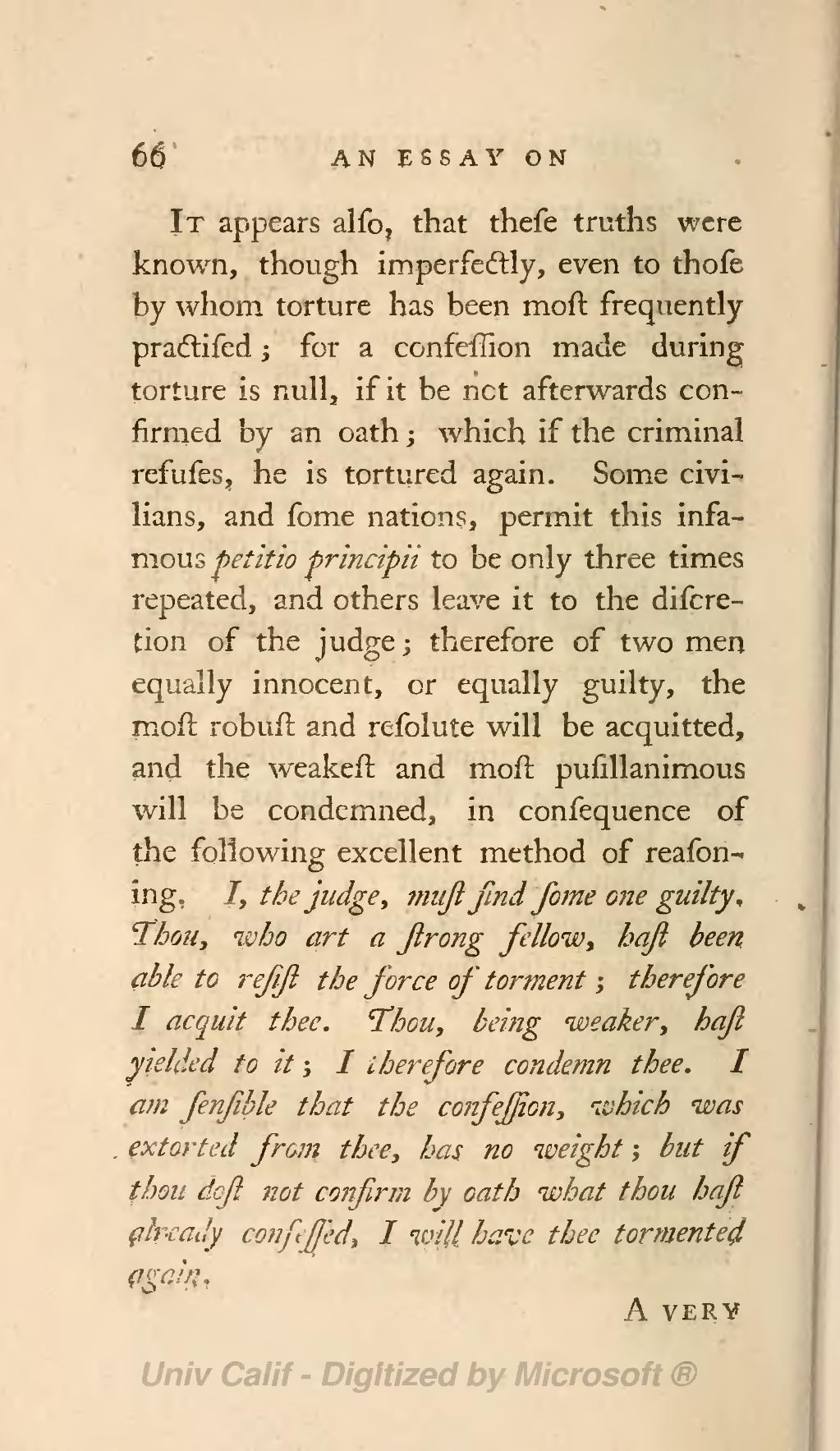It appears also, that these truths were known, though imperfectly, even to those by whom torture has been most frequently practised; for a confession made during torture is null, if it be not afterwards confirmed by an oath; which if the criminal refuses, he is tortured again. Some civilians, and some nations, permit this infamous petitio principii to be only three times repeated, and others leave it to the discretion of the judge; therefore of two men equally innocent, or equally guilty, the most robust and resolute will be acquitted, and the weakest and most pusillanimous will be condemned, in consequence of the following excellent method of reasoning. I, the judge, must find some one guilty. Thou, who art a strong fellow, hast been able to resist the force of torment; therefore I acquit thee. Thou, being weaker, hast yielded to it; I therefore condemn thee. I am sensible, that the confession which was extorted from thee, has no weight; but if thou dost not confirm by oath what thou hast already confessed, I will have thee tormented again.
Page:Essay on Crimes and Punishments (1775).djvu/78
This page needs to be proofread.
